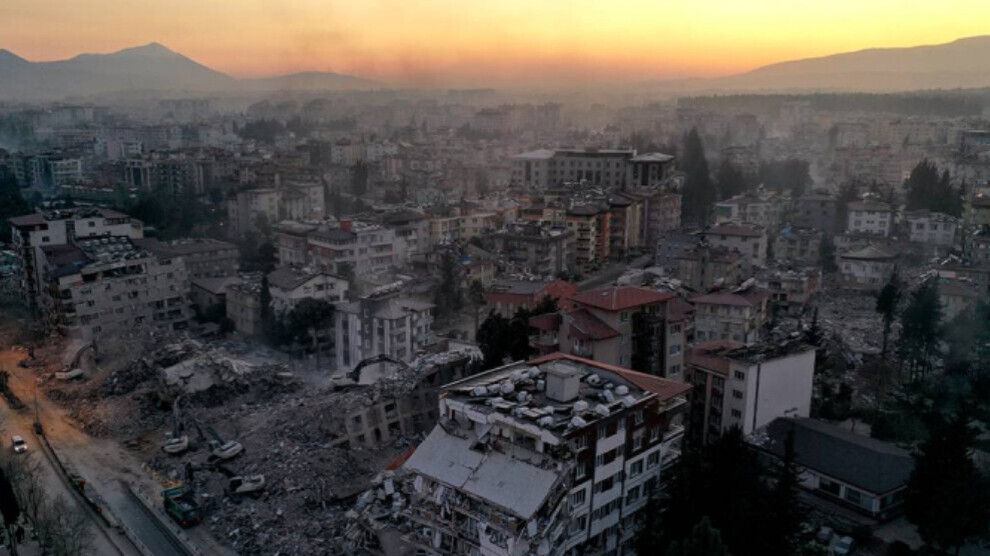Kayataş: We will increase solidarity
DBP Ankara Advisory Office spokesperson Kayataş said that they will expand the solidarity network despite the government's obstacles.
DBP Ankara Advisory Office spokesperson Kayataş said that they will expand the solidarity network despite the government's obstacles.

Democratic Regions Party (DBP) Ankara Advisory Office Spokesperson Murat Kayataş told ANF that they are determined to nullify the attempts to prevent the solidarity networks they have knitted with the people, and added: "Their wound is our wound, their pain is our pain."
Kayataş said that it was seen that the state was not actually prepared for the earthquake and could not provide adequate coordination, and added that search and rescue teams from outside were also blocked. Noting that the intervention of both aid and volunteer teams in the region was prevented in the first three days, Kayataş said that “unfortunately, there have been serious grievances and loss of life in this sense. Thousands of people died from cold and internal bleeding. On the 3rd day of the earthquake, we went to Adıyaman (Semsûr) with a team of 16 people from Ankara. We were involved in the work of our crisis coordination center in Adıyaman. Some of us were involved in search and rescue efforts. Some of us were also involved in a very fast, organized and strong work to ensure the distribution of incoming aid, like tents, blankets and meeting basic needs. Unfortunately, while we were in Adıyaman, much needed help from outside started to be blocked.”
We will continue solidarity by overcome obstacles
Kayataş said: "The approach to people is one of slave mentality, which does not recognize the will of the people, the local will and the organized power of the people. Using the force device in its hand, the government actually objectifies the people themselves. It is trying to disable the organized power of the people and change their will through force. Whatever they do, we are determined to thwart their attempts to hinder the solidarity networks we have built with our people. Their wound is our wound; their pain is our pain. We have to do whatever we can to relieve the suffering of our people, as a party, as an institution, and as individuals.”